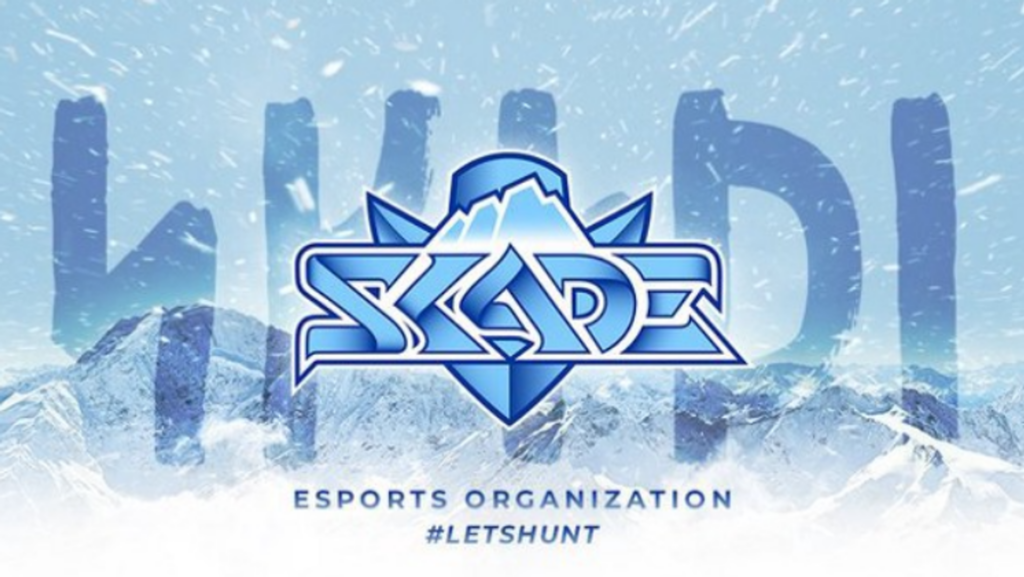Two separate SKADE teams participated in the third and fourth open qualifiers for the European RMR of the upcoming Rio de Janeiro Major. If each had won two more matches, the two would’ve even met in Round 16 of the third qualifier.
One is the Bulgarian SKADE. A lineup that the organization has housed and become known for over the last few years. The other, the Norwegian lineup, announced last month under the name ‘SKADE X’. They competed in the qualifier under the name ‘En av de lette’ and the tag ‘1ADL’.
Contents
Why does it matter?
Two teams operating under the same organization, or even under two intertwined organizations, would be in clear violation of the rules. This is why the story ruffled some feathers among competitors and raised observers’ eyebrows. Most of the teams in these qualifiers may be inconsequential to top-tier CS:GO, but the event plays a role in who goes to the Major. Maintaining the competitive integrity of the regional open qualifiers is key to doing the same for the entire Major cycle.
What do the rules say?
One of the regulations from the Supplemental Rulebook (regarding team names, logos, and title sponsors) leaves room for interpretation. Some could construe it as a green light for a second team under the same umbrella to participate in the event, as long as the team changes its name and banner. However, the ‘Conflicts of Interest’ and the ‘Multiple teams’ (2.11.3.1 from General Rules) clauses are explicit that any sort of business ‘entanglement’ between two teams breaks the rules.
Details about the SKADEs
When SKADE X was announced last month, it was SKADE’s CEO, Morten Skaland, who commented on the lineup. Skaland described SKADE X as a ‘collaboration’ of ‘various parties’. The parties being, as listed: SKADE itself; Jotunheimen Esports, a PC bar with one Alexander Hole as its CEO; and ULTI Skins, which is ostensibly connected to ULTI Agency, but doesn’t share ownership figures per the Norwegian business register.
Additionally, SKADE X is listed on SKADE’s website and was announced on SKADE’s socialmedia. Of the latter, SKADE X seems to have only an individual Twitter account dedicated to itself. Normally, the two also don the same SKADE logo, with the addition of a stylized X behind it for the Norwegians.
 SKADE, SKADE X logos
SKADE, SKADE X logosAll of this is to say that the two teams give the impression of being very much entangled.
So, how connected are they?
For starters, the two rosters appear to be established under separate companies.
We reached out to Kim-Erik ‘Zarotan’ Aanes (a founder, former managing director, and current head of esports at SKADE) to clarify the situation for us. Initially, he echoed the sentiment from the SKADE X announcement, explaining that SKADE X is operated by a different company owned jointly by the three aforementioned parties. (SKADE, Jotunheimen Esports, and ULTI Skins)
However, Aanes seemed mostly unaware of what SKADE X is up to and later corrected himself, saying that he was just told the above is not the case. Instead, SKADE X is owned solely by a company named Midgard, of which the aforementioned Alexander Hole of Jotunheimen Esports is a founding board member.
Hole explained to BLIX that SKADE X is simply a name used for branding purposes, presumably to help with Norwegian sponsorships.
Before SKADE X, Midgard used to run a team under its name that competed in Telialigaen, a local Norwegian league. Hole and Midgard own the spot in the league, and the newly-assembled SKADE X will compete in place of the old Midgard roster.
The remaining concerns
Hole explained that on August 1, he and two parties he broadly referred to as SKADE and ULTI each ‘put down 10K euros’ to fund contracts and boot camps for the SKADE X team. Additionally, strictly in terms of favors: ULTI would use its knowledge of players to help assemble the team and SKADE would use its resources to create content, promoting SKADE X.
Thus, all three parties teamed up to strengthen Norwegian CS:GO.
Hole avoided elaborating on the exact nature of the ‘agreement’ between the three parties, except reiterating that they consider it an ‘investment from us three parties to create a Norwegian team together, and lift the gaming environment’.
Morten Skaland, SKADE’s CEO, hasn’t responded to our inquiries for a comment on the story either.
The Supplemental Rulebook prohibits ‘business entanglement’. It specifically names loans as such, and an investment would likely qualify as one too. But we don’t know the â¬10,000 that Hole said SKADE provided for Midgard is either. It could just as well have been a donation ‘ even though Hole didn’t identify it as such when asked pointedly ‘ which may be an exception and certainly isn’t named by the rules.
Furthermore, Hole’s claim that the two companies are separate entities checks out, as there seems to be no overlapping ownership or shareholders according to the Norwegian business register.
Last but not least, while ESL did not respond to our request for comment, the tournament organizer was aware of the situation. Judging by both teams having been allowed to compete in the fourth qualifier, ESL has likely seen evidence it’s deemed sufficient proof of independence between the two organizations.


